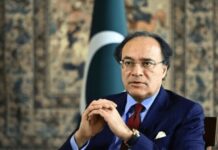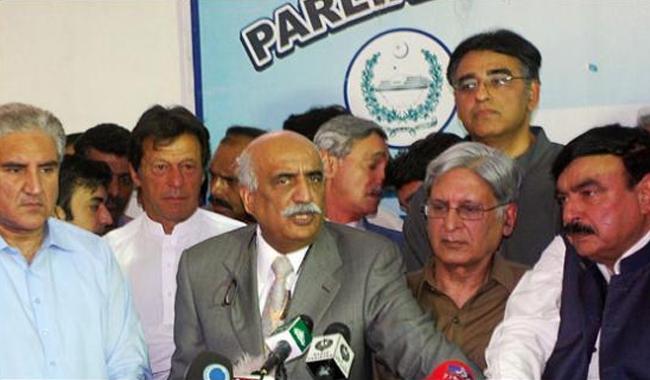ISLAMABAD
As the budget debates at National Assembly are nearing conclusion without any active participation of opposition parties – which have kept insisting live telecast of the sessions instead of highlighting deficiencies in the next budget – the businessmen and analysts have criticized them for not taking the budget seriously.
However, sources at Pakistan Tehrik-e-Insaf claimed that the budget was largely neglected by the opposition parties to keep media’s focus on Panama case and proceedings of Joint Investigation Team (JIT). The other reason for little participation in the budget-related debates was that opposition feared government will try to score achievements in the only few sectors like CPEC, FDI and domestic growth etc as claimed in budget documents. “To keep the momentum of damages to the government in Panama case the budget was not given due consideration,” the sources claimed.
On the other hand, analysts and businessmen have shown serious concerns over the way the opposition parties have dealt the budget of 2017-18. They were of the view that for political point scoring opposition parties have sidelined economy which needed serious consideration. According to a member of FPCCI, various sectors which are concerned about budget papers were now registering their demands through FPCCI or advertisements in media.
Talking to Pakistan Today Dr Waqar of SDPI said despite the fact the next budget has many flaws and serious concerns of stakeholders, the opposition parties neglected them at the cost of political gains.
The important issue of increasing cost of doing business in the country has not been addressed in the budget documents. The government, instead of decreasing the cost, has further fueled it by imposing regulatory duties on 530 items in the next budget. The source said, “Though the government claimed to keep the sales tax, income, corporate taxes etc unchanged in the next budget at the same time it imposed regulatory duties and the burden of tax increased.”
The most damaging factor in the next budget is giving free hand to provinces for levying taxes. Sindh Government has imposed high taxes on IT, computer, telecom, and service sectors.
Another factor in the taxation sector was overlapping of taxes by center and provinces which also remained unaddressed in the next budget. “Farmers’ woes regarding service charges of 5 to 7 per cent being charged by banks apart from the interests were also not addressed by the government. With the presence of service charges farmers are forced to pay around 14 to 15 per cent interests to banks despite the tall claims of government about providing loan with reduced interests,” he opined.
According to Chief Coordinator of Pakistan Hosiery Manufacturers and Exporters Association, Jawed Bilwani only Rs 4 billion was allocated to textile out of Prime Minister’s 180 billion export bailout package for next financial year despite much-hyped package for export growth in next two years.
The finance minister in his concluding budget address on Tuesday, however, said that recommendations by the opposition have been received through Senate and standing committees, adding that all members have forwarded their recommendations. The finance minister said that 75 recommendations by Senate have been accepted whole or in part and 147 budget recommendations have been forwarded to the planning division.
He also complained about no seriousness of opposition towards the budget debates.
Opposition parties continued to boycott the National Assembly proceedings for many days in protest against the government for not telecasting their budget speeches live on Pakistan Television (PTV) News.























